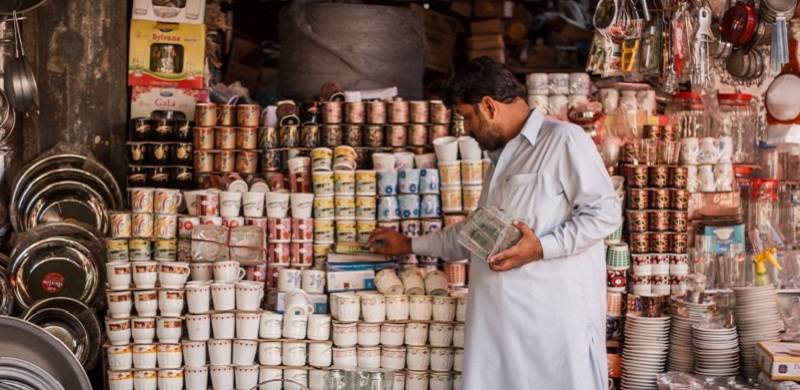
Inflation in Pakistan has nearly broken a two-year record, reaching 13 per cent for January and rising for the fifth consecutive month in a row.
According to the Pakistan Bureau of Statistics (PBS), the Consumer Price Index (CPI) increased to 13 per cent over the same month last year, the highest in 23 months. The inflation rate is in line with predictions from analysts, who had expected double-digit inflation this month as the baseline inflation in 2021 was relatively low.
On a month-to-month basis, inflation rose by 0.4 per cent, relatively 'flattish.'
The inflation rate is mainly impacted by electricity prices, rupee-dollar parity, international commodity prices, and in particular oil prices, which have surged internationally, according to experts.
“The year-on-year increase was fueled by non-food items — housing and transport. Moreover, the base inflation last year was lower.” Sana Tawfiq, an analyst from Arif Habib Limited (AHL), told Geo TV.
The PBS data showed inflation increased in both rural and urban areas. The food inflation rate reached 13.3 per cent in villages, while it was slightly lower in urban areas at 11.8 per cent. However, overall, on a month to month basis, food inflation has slightly declined. Similarly, non-food inflation was slightly higher in rural areas, where it stood at 13.9 per cent, versus 12.8 per cent in urban areas a year prior.
The inflation rate for housing, water, and utilities rose by 15.53 per cent across the country in January from a year prior.
The Wholesale Price Index (WPI), which reflects prices in the wholesale market, clocked the highest increase at 24 per cent, compared to 6 per cent in January a year ago.
Yesterday, Prime Minister Imran Khan rejected a proposal to increase petroleum prices. Earlier this month, he had advised PTI spokespeople to downplay rising inflation in the country.
According to the Pakistan Bureau of Statistics (PBS), the Consumer Price Index (CPI) increased to 13 per cent over the same month last year, the highest in 23 months. The inflation rate is in line with predictions from analysts, who had expected double-digit inflation this month as the baseline inflation in 2021 was relatively low.
On a month-to-month basis, inflation rose by 0.4 per cent, relatively 'flattish.'
The inflation rate is mainly impacted by electricity prices, rupee-dollar parity, international commodity prices, and in particular oil prices, which have surged internationally, according to experts.
“The year-on-year increase was fueled by non-food items — housing and transport. Moreover, the base inflation last year was lower.” Sana Tawfiq, an analyst from Arif Habib Limited (AHL), told Geo TV.
The PBS data showed inflation increased in both rural and urban areas. The food inflation rate reached 13.3 per cent in villages, while it was slightly lower in urban areas at 11.8 per cent. However, overall, on a month to month basis, food inflation has slightly declined. Similarly, non-food inflation was slightly higher in rural areas, where it stood at 13.9 per cent, versus 12.8 per cent in urban areas a year prior.
The inflation rate for housing, water, and utilities rose by 15.53 per cent across the country in January from a year prior.
The Wholesale Price Index (WPI), which reflects prices in the wholesale market, clocked the highest increase at 24 per cent, compared to 6 per cent in January a year ago.
Yesterday, Prime Minister Imran Khan rejected a proposal to increase petroleum prices. Earlier this month, he had advised PTI spokespeople to downplay rising inflation in the country.

